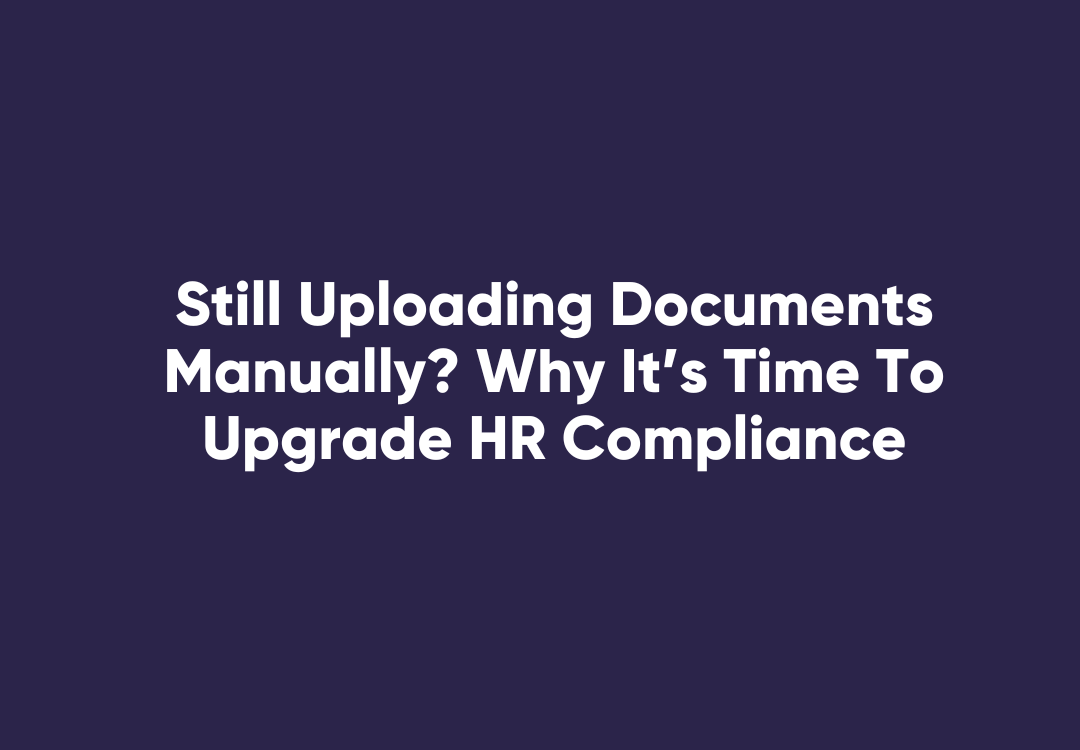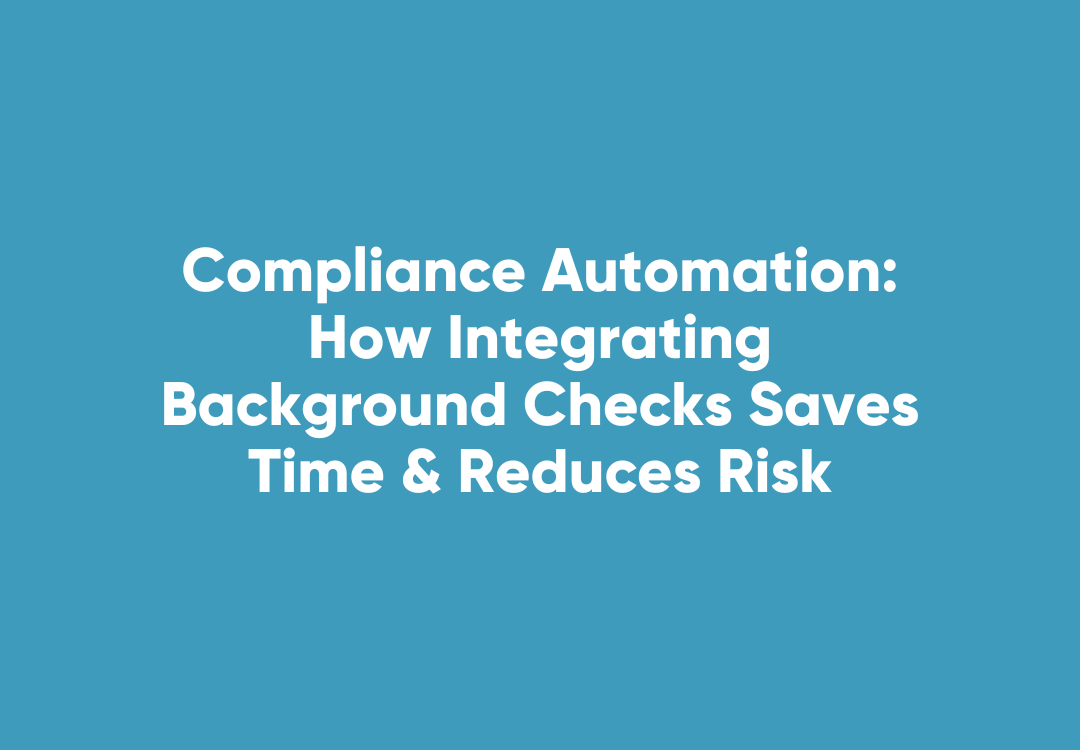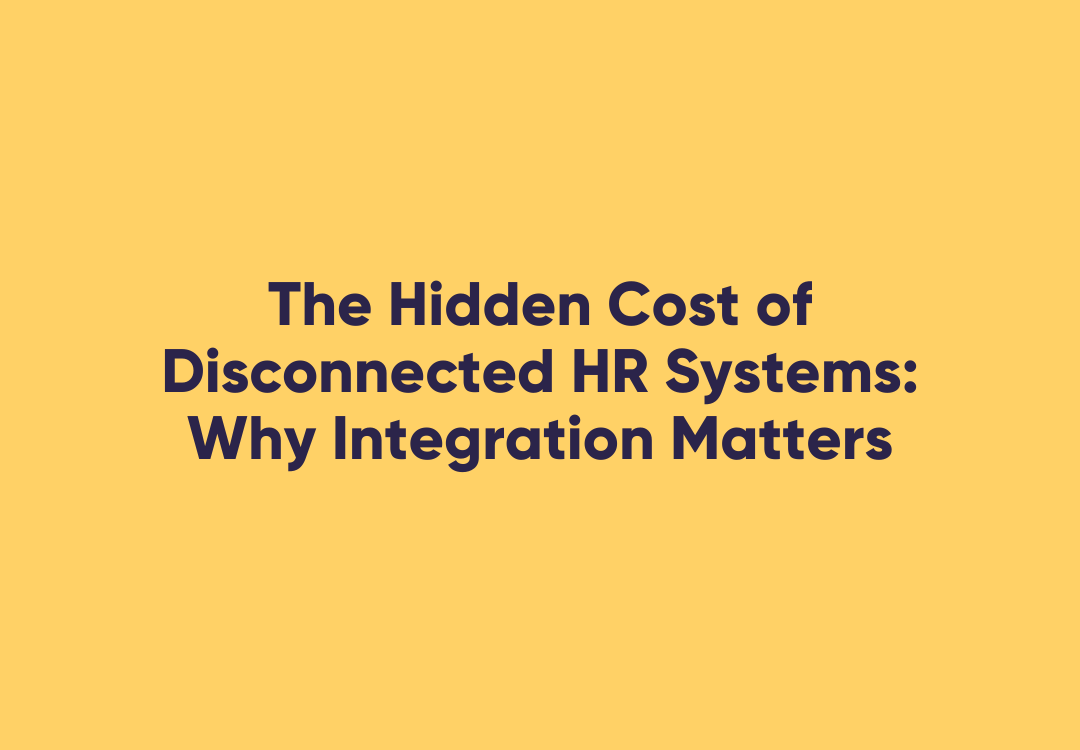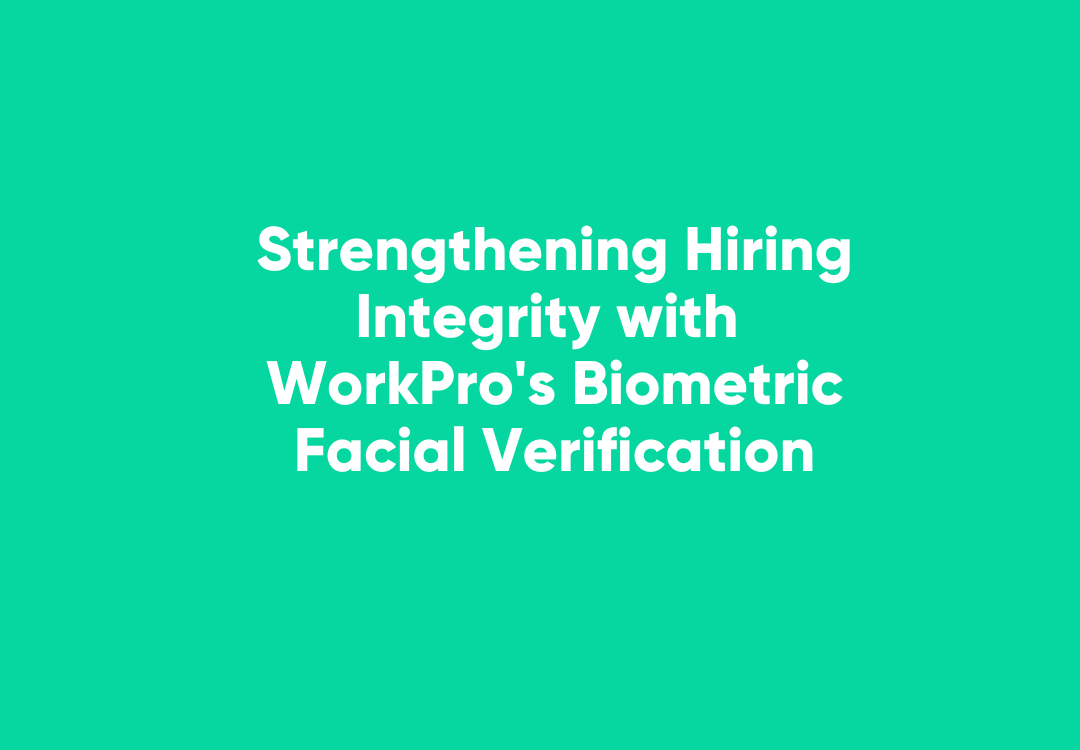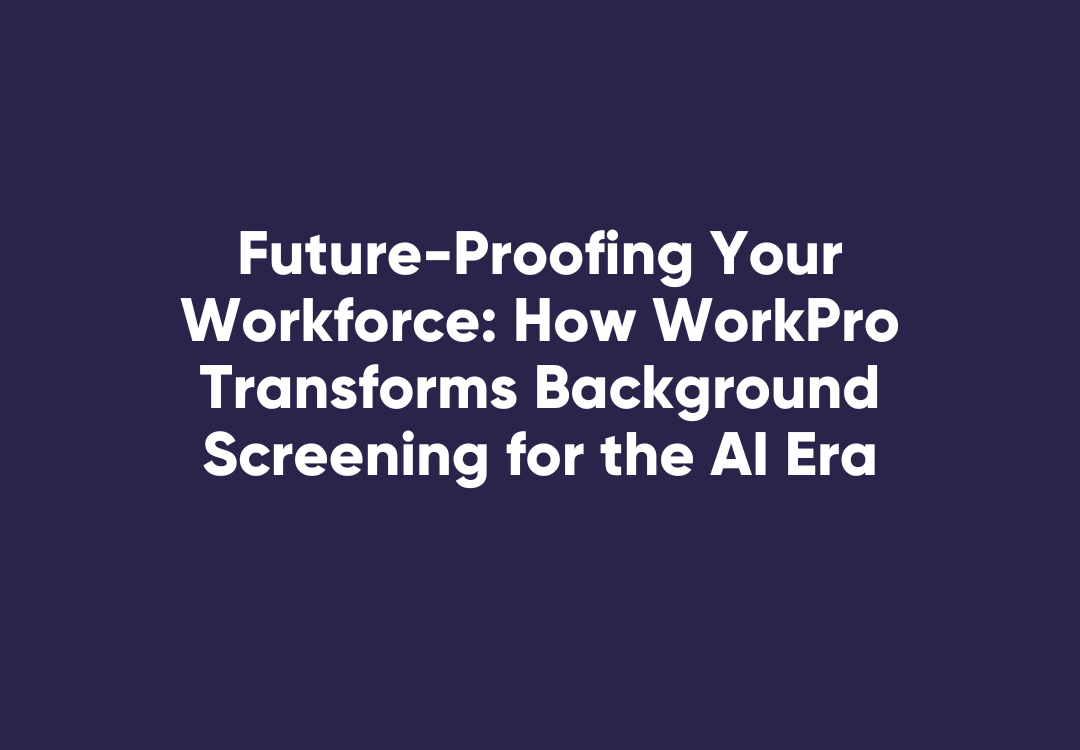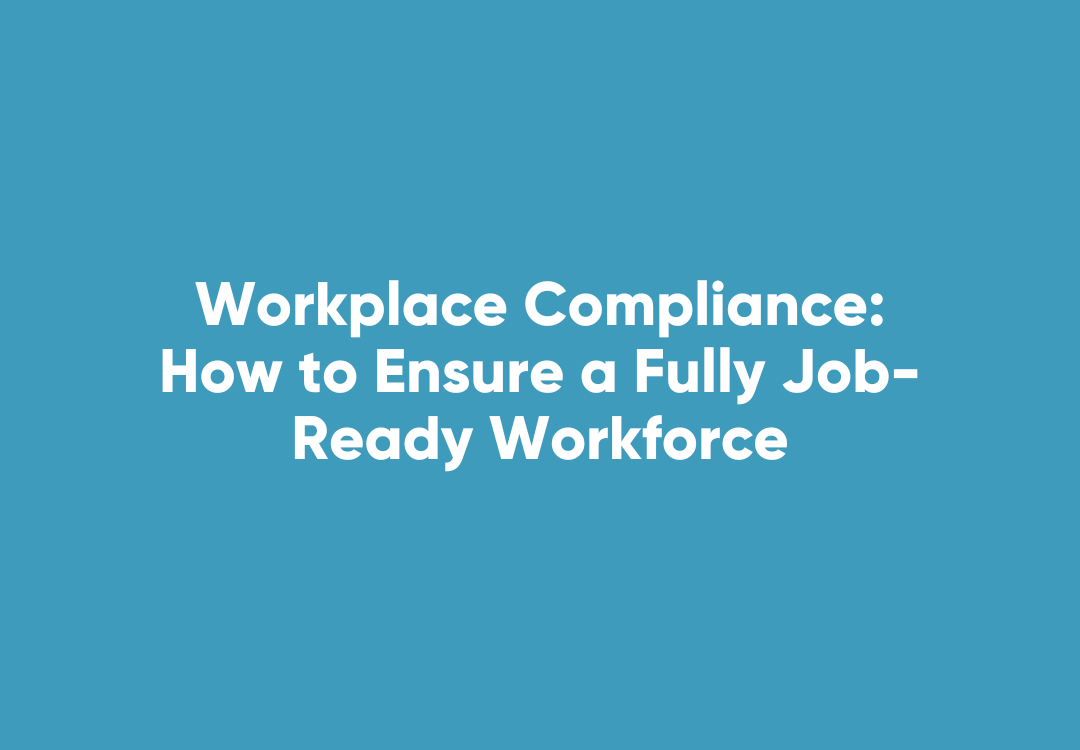Building a Workforce Ready for the Future with Skills-Based Hiring
Building a Workforce Ready for the Future with Skills-Based Hiring
The traditional approach to hiring often places too much emphasis on past job titles, specific industry experience, and formal qualifications. While experience can be valuable, it doesn’t always equate to capability—nor does it guarantee that a candidate is the right fit for a workplace.
Take, for example, the rise of digital transformation across industries. Ten years ago, job roles in areas like data analytics, cybersecurity, and artificial intelligence barely existed in many businesses. Today, they are in high demand, but the supply of experienced candidates remains limited. Organisations that insist on hiring candidates with “five years of experience” in a field that has only just matured may find themselves in a constant hiring bottleneck.
A more effective approach is to hire for skills and adaptability rather than rigid experience criteria. Skills-based hiring allows organisations to tap into a wider talent pool, accelerate hiring processes, and build a workforce that can evolve alongside industry changes. This approach recognises that the best candidates are not always those with the most years in a role but those who have demonstrated the ability to learn, grow, and apply their skills effectively.
By shifting to skills-focused recruitment, companies can future-proof their teams, reduce turnover, and create a more diverse, resilient, and engaged workforce.
Why Skills-Based Hiring Creates a Stronger Workforce
1. Building a Workforce That Can Adapt and Grow
Industries are evolving at an unprecedented pace. The skills required for a role today may not be the same skills needed in two to five years. A workforce composed of employees with strong learning abilities, problem-solving skills, and adaptability is far better equipped to handle technological advancements, industry shifts, and new business challenges.
Rather than searching for candidates who have done the job before in the exact same way, businesses should look at how a candidate has developed their skills in previous roles. Did they take on new challenges? Have they pursued further training or certifications? Have they demonstrated the ability to upskill and pivot?
Skills-based hiring focuses on assessing a candidate’s actual competencies, ensuring that hires are ready to contribute from day one while also being equipped to evolve alongside the business.
2. Expanding the Talent Pool Beyond Traditional Backgrounds
By focusing on verifiable skills and job-related competencies rather than requiring a specific career trajectory, businesses can attract a more diverse range of candidates.
This includes:
- Individuals from non-traditional backgrounds who have developed their expertise through online courses, certifications, apprenticeships, or hands-on experience.
- Workers looking to transition into a new industry where their transferable skills—such as leadership, problem-solving, and technical knowledge—can be applied in fresh ways.
- Experienced employees with strong credentials but lacking a formal degree, who would otherwise be overlooked in a degree-filtered hiring process.
By broadening hiring criteria, businesses fill roles faster, reduce recruitment costs, and build teams that bring fresh ideas and perspectives to the organisation.
3. Improving Employee Retention by Investing in Growth
Employees stay in organisations where they feel valued and have opportunities for development. Businesses that hire based on skills and demonstrated competencies rather than rigid experience create a culture of continuous learning and progression.
- Employees who are given opportunities to upskill and reskill are more likely to stay engaged and committed to the company.
- Workforces that have clear career development pathways—where employees see that growth is based on skills, not just tenure—are less likely to seek opportunities elsewhere.
- Internal mobility is strengthened when employees know that their efforts to develop new competencies will be recognised and rewarded.
By hiring for skills and development potential, businesses reduce turnover costs, increase engagement, and create a more motivated workforce.
How WorkPro Helps Businesses Shift to Skills-Based Hiring
Hiring based on skills requires more than just a mindset shift—it requires the right tools to verify workforce readiness, track credentials, and ensure compliance. While WorkPro does not assess skills directly, it plays a crucial role in supporting skills-based hiring by providing automated credential management, compliance tracking, and workforce verification solutions.
Credential Management: Ensuring Candidates Are Job-Ready
One of the biggest barriers to hiring for skills is verifying whether a candidate truly possesses the competencies they claim to have. WorkPro simplifies this process by digitally managing and verifying essential licences, accreditations, certifications, and compliance-related documents.
- Recruiters can quickly assess job-readiness based on verified credentials, ensuring candidates meet required industry standards.
- Automated alerts notify hiring managers when certifications or qualifications are due for renewal, eliminating the risk of hiring candidates with expired or incomplete credentials.
- Pre-employment background checks, work rights verification, and identity validation ensure that candidates are both legally and professionally equipped to take on the role.
This eliminates manual administrative burdens and allows HR teams to focus on assessing the right skills, rather than getting lost in paperwork.
WorkPro ID: Enabling Seamless Internal Mobility
Hiring doesn’t just happen externally—internal mobility plays a crucial role in ensuring businesses make the most of their existing workforce.
WorkPro’s WorkPro ID allows employees to share their verified credentials, background checks, and training records across departments, branches, or business units, giving HR teams a clear view of who is already equipped for new roles.
This allows businesses to:
- Identify employees who are ready for promotion based on their verified qualifications and completed training.
- Support career transitions and redeploy existing talent without requiring redundant background checks or re-certifications.
- Ensure compliance across locations when employees shift between roles, ensuring they always meet the necessary regulatory and skills-based requirements.
By leveraging existing skills within the workforce, businesses reduce hiring costs, improve retention, and accelerate workforce agility.
eLearning: Supporting Continuous Skill Development
WorkPro also helps organisations invest in ongoing learning and skills development by offering:
- Over 60+ pre-built eLearning modules, covering industry compliance, work health and safety, and job-specific training.
- The ability to upload custom training programs, allowing businesses to create tailored learning pathways for employees looking to expand their skill sets.
- Automated tracking and renewal notifications, ensuring employees remain compliant and up to date with necessary job-related knowledge.
By integrating training, compliance, and credential management, WorkPro helps businesses future-proof their workforce by ensuring employees are consistently learning and developing.
Creating a Workforce That’s Ready for Growth
The world of work is changing, and businesses that cling to outdated hiring methods based solely on past job titles and rigid experience requirements will struggle to keep up.
By embracing skills-based hiring and workforce development, organisations can:
- Expand their talent pool to include high-calibre candidates from diverse backgrounds.
- Hire faster and more effectively, ensuring new employees are qualified and job-ready from day one.
- Build a workforce that is resilient, adaptable, and ready for future industry shifts.
Let’s Build a Skills-First Hiring Strategy Together
Hiring based on skills and job-readiness isn’t just a trend—it’s the future of workforce success.
Ready to move beyond outdated hiring models? WorkPro provides automated compliance solutions, credential verification, and workforce learning tools to ensure your hires are skilled, compliant, and ready to grow.
- Reduce hiring friction with seamless credential management
- Ensure compliance and workforce readiness with automated tracking
- Invest in employee development with custom eLearning solutions
Let’s talk.
Book a demo today and discover how WorkPro can help you redefine your hiring strategy for long-term success.





